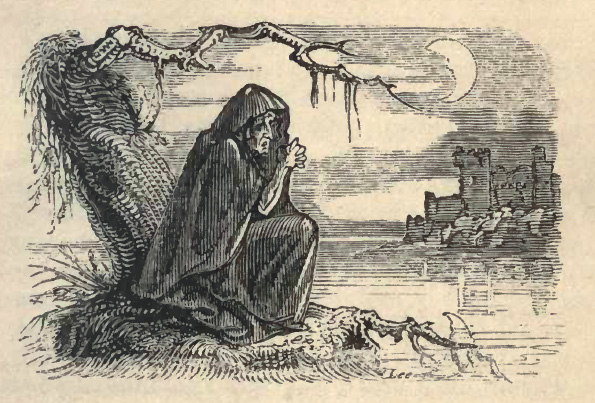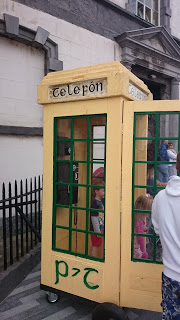downriver, we were joined by the Passage and Ballyhack men, forming a convoy of
decked and half decked motor boats of varying size and power and a multitude of
colours. Depending on the tides, the
Passage men might head down inside the Spit light along the west banks, with
Creaden off their starboard bow. The “Pointers”
along with the “Hackers” favoured the channel waters around the spit,
onto Duncannon and beyond to the lower harbour.
 |
| the Cheekpoint fleet from around this time Photo courtesy of Anthony Rogers |
It was only after Duncannon that you felt the change in the
river and the deepening and less familiar seas of the lower harbour. The sea around Broom Hill told you all you
needed to know of what to expect below.
If the rocks were calm and free of waves, you could expect a reasonable
sea, but if the seas were surging up and around, it was to be heavy going. If seas were breaking, and the mists were
rising up from it onto the grass banks above, then you knew the seas were
turbulent, and most likely we would never have even “set sail”. (Many was the afternoon the skippers would be up on the high road, looking down the harbour and discussing the weather)
hungrily searching the deeper waters for signs of herring shoals. Some were close in to the shore, beneath
Loftus Hall and further down towards the Hook. Others maybe stretched as far as
Creaden Head. Boats took various courses,
and many zig zaged amongst each other, keen to “mark” a herring shoal on the
fish finder and establish a pattern of where to “shoot” the nets. Dunmore boats skippered by Paul Power, Napper Kelly and Mick Sheen would be sounding as they came across to met us, effectively covering the entire harbour.
the Commeraghs away to the west, the frenzy grew. Some evenings the sunset was hidden but the evenings the sky was clear were a feast for the eye, the colours magical, the sky almost afire, a contradiction to the cold night to come. Boats were eager to set in daylight, to
better see where others were setting nets, and also because the herring tended
to rise with the dusk and skippers felt they would miss their chance of a
decent haul if they left it too late.
activity, the tell tale signs of gulls wheeling overhead, or divers such as the
majestic and gigantic gannets plunging from a hundred feet or more into the
freezing seas and emerging with a beak full of silver meat. On these nights the boats tended to be well
spread out and the VHF radio was quiet.
Occasionally a haunting voice would float across the radio. Kenny Bolger (RIP) singing an Irish ballad,
when that happened, it tended to confirm that there would be no fish on that
particular night. The Bolgers were fishy folk, as good at catching fish as anyone, and if my school mate from De La Salle was left near the radio it meant there was damn all else to do.
seals. A slick of oil, released from the
herring on the sea bed, which Denis said you could smell and taste in your
mouth, but something, I never manged to do.
The radio was buzzing with sightings and at times Jim would call us in
to look at the fish finder, the tell tale blackness of a herring shoal, and the
extent of it mapped out on the grey blue paper as a stylus flicked over the
paper marking the fish below.
winkie was turned on and cast over, followed by the nets. I looked after the lead rope initially, not
trusted as yet with the head rope and ensuring that the cans were paid out clear
of the nets and set to the correct depth.
Generally all the nets were set, but occasionally, Jim might heave too,
concerned by the markings on the fish finder and the extent of the shoal. When you hit the herring in large quantities
a couple of nets could fill the boat, and the last thing you needed was extra
work. Once set, the nets were tied via a
hauling rope to the bow of the boat we hung from them.
out. Tea in the Reaper was always good. As much as Jim loved his cigarettes, he
equally loved his tea. The kettle was
boiled on a gas stove and the tea bags were added as the kettle started to
sing. Hot and sweet, tea and sandwiches
never tasted any better.
occasion I was asked to go with another Cheekpoint boat for a couple of evenings. Having set the nets, The skipper tasked his brother “wet the
tea” What he produced was so vile, even
the copious amounts of sugar I added couldn’t disguise the awful
taste. I honestly thought he had pee’d
in the kettle and on the first opportunity tossed the lot over the side. When he spotted my cup empty he was immediately
on me, “will ye have more tea Andy” “I won’t J… J.. thanks” says I…and like a
not yet created Mrs Doyle, he harangued me about it saying ”a ya will, ye
fecking will” until I dolefully relented. The next night I was more wary,
and as “cook” went forward to boil the kettle I kept a close eye. Under constant pressure from the skipper who would
shout in occasionally, reminding him to hurry, that they needed to haul the
nets, he flung in the tea bags before the kettle was anywhere near boiling
and emerged with only a faint hint of steam from the kettle moments later. At least I could drink it knowing the problem
was half-boiled water.
they were fishing, and to get a sense of how heavy the catch might be. Too early and you could haul the nets off the
rising fish, too late however and you risked overloading the boat.
easier. Once ready to commence, the rope
was hauled in to the gunwale and opened from the net. Then the head and lead ropes were gathered up
and placed over the hauler drum. The
hydraulics were engaged and the nets were then pulled on and helped in over the
side.
nets, Denis hauled the ropes and I gathered up the nets as they fell to the
deck and dragged them to the stowing area.
When the catch was light this was easy enough, but on nights with a big
catch, this was hard arduous work. The
netting coming in over the drum could be three feet wide and it was all I could
do to help Denis and Jim at the hauler and then stagger away under the weight
of the nets to stow them on the boats deck.
occasion Denis had given me a tongue lashing.
Stowing the nets meant making it easy to clear them afterwards and safe
to steam back to port. On a decked boat,
it was important that the nets and fish were properly dispersed, and it was
something he wanted me to get right from the start.
ephuroia aboard. A big catch, once you
had a market, meant a decent wage that week, and in the weeks coming up to
Christmas, or indeed after it, such a catch was always welcome. Big catches were not the norm, and you would
have plenty of”watery hauls”. You tended to relax after that exertions and
in the tired but happy glow, surrounded by flipping fish in their death throes
and wheeling gulls, calling to you, as if for a feed, Denis would often set to
telling yarns. Jim tended to wink at me,
or throw his eyes up to heaven and I never knew if there was any truth in what
Denis would tell me, but I would always be doubled up with laughter.
headed across the harbour towards Dunmore. “Did I ever tell ye the one about Tailstones (Jimmy Doherty) and the seal in
Youghal”. Even if he had I would have
said no. I never got tired of listning
to his stories. “Himself, Lannen (Jimmy’s brother Andy) and
myself were fishing salmon in the Dominic this summer down in Youghal. Well all was going grand till this day we were
hauling back on the nets and half the fish that came in over the side had a
piece missing. ‘Mother of God’ said
Lannen…’if them seals don’t clear off, we wont have the price of a pint this
week’ Tailstones said he’d put them
seals right, once and for all. Next day
they arrived in Youghal to go fish and he retrieved a shot gun from out of the
back of his van. When they were out
fishing, I spotted a seal a long way off, head bobbing out of the
water. Tailstones fired up the engine
and went in pursuit and moments later brought her about and stepped up to the
Gunwhale, loading the gun. He raised it
and was about to discharge it when the seal turned and lo and behold the seal
had the full face mask of a diver and a mouthpiece to boot. I threw my hand up and diverted the gun
barrel to the heavens and the same moment the gun was discharged and the only
casualty was a gull that happened to be flying past. ‘Mother of God’ said Lannen, ‘we’d have never got
absolution’








